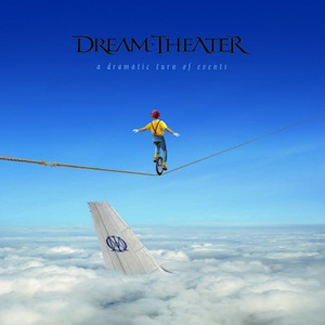Musical Social Media Then and Now, with Megadeth, Queensrÿche and Dream Theater
All the latest guitar news, interviews, lessons, reviews, deals and more, direct to your inbox!
You are now subscribed
Your newsletter sign-up was successful

Here in 2011, it feels like the electrical interwebs have been with us forever. But it wasn't always so.
Once upon a time, way back in the 1990s, the internet was a strange, disconnected place. Tech-savvy fans passed info around via primitive newsgroups, and even if they used the Internet to track down bootlegs of their favorite artists they still traded them as actual CDs through the mail.
The very idea of downloading a live show via modem was laughable thanks to 16.6kb connection speeds. And there was no Twitter or Facebook to help musicians interact with fans.
One of the first artists to have their own website was Mike Keneally, back in 1994. (The site used to share server space with a few other interesting sites like one called Poison Pentium, which was mainly about weird calls that a guy manning the poison control phone line received, as well as a hilarious anecdote about someone mis-hearing "Peter Cetera" as "Penis of Terror.")
Mike's site still online today, and although it's very different now most of the old content is still there if you dig around a bit. And in hindsight, Mike almost comes across as the first music blogger as we understand the term now.
Yet there are still bands today who don't have an official website, or whose online presence is mainly handled through sites like Reverbnation or even MySpace. And even an artist as fan-friendly as Paul Gilbert isn't on Twitter.
Artists agonize over how much to share and how much to hold back. Megadeth were an early web pioneer. Their old "Megadeth, Arizona" site was an early place for fans to hang out and interact with the band from afar.
All the latest guitar news, interviews, lessons, reviews, deals and more, direct to your inbox!
"That's fun," Mustaine says. "I think the fans deserve to be clued in. I can dig when musicians go, "Man, we want to be mysterious,' but ya know, when you're alive and your fans can actually come and talk to you, don't be some stuck-up twat! C'mon man, tell us what you're about!"
But even so, Mustaine prefers to maintain at least a little privacy.
"I want to be hanging out with the fans and stuff like that, but do I want to be sitting down in a bar when you can walk through a hotel and see me over there with my face in a beer when you're supposed to be paying to see me on stage the next night as this larger-than-life figure, and you see me slurping down a beer and with a face full of french fries? No! That's fair to fans -- I think they need to be able to see you at your best."
Queensrÿche were another early tech adopter. Even before they debuted their official website, fans engaged in futuristic Rÿchean discussions online, and the band even created the world's first full-length rock 'n' roll CD-ROM adventure game based on their 1994 Promised Land album.
"We have a pretty close relationship to our fans," singer Geoff Tate says. "We have a lot of fan activities, contests, meet-and-greets. And we have a fairly active fan site as well. We're always looking for ways to include the fans in what we do in our music and performances. Two years ago, we had a contest where we gave our fanbase a chance to come up on stage during the show and do a song with us from our covers album. Then the audience would pick their favorite performer. The big prize was they got to record with us on the American Soldier album."
Recently the band invited fans to create their own video for the song "Wot We Do" from their new album, Dedicated To Chaos.
One artist who's relatively new to the full-on social media world is Dream Theater's John Petrucci. Since the departure of drummer Mike Portnoy, the rest of the band has stepped up to the plate in interacting with fans more - including a hilarious new promo video for the A Dramatic Turn Of Events box set.
"It's something that we enjoy doing," Petrucci says. "Everybody's very eager to get involved. Mike Portnoy certainly did a lot for the band. He was out front and he was the communication between fans and the label. I really appreciate everything that he did. But you tend to get a little bit detached from what's really going on. To give you an example, I didn't even know there was a promo video for the Black Clouds & Silver Linings box set until they asked us to do this one. Now everybody is way more in the loop and involved, and we're keeping things that way on purpose. It's just having better communication."
Petrucci says this has also helped communication within the band.
"Having Mike leave was a wake-up call. You really need to keep tight with everybody, know what everybody's thinking, and if there are any weird feelings, get those out and talk about things. It's a funny side-effect, but it's been a positive one."
Peter Hodgson is a journalist, an award-winning shredder, an instructional columnist, a guitar teacher, a guitar repair guy, a dad and an extremely amateur barista. In his spare time he runs a blog, I Heart Guitar, which allows him to publicly geek out over his obsessions. Peter is from Melbourne, Australia, where he writes for various magazines as well as for Gibson.com.
Peter Hodgson is a journalist, an award-winning shredder, an instructional columnist, a guitar teacher, a guitar repair guy, a dad and an extremely amateur barista. He runs a blog, I Heart Guitar, which allows him to publicly geek out over his obsessions. Peter is from Melbourne, Australia, where he writes for various magazines, including Guitar World.
